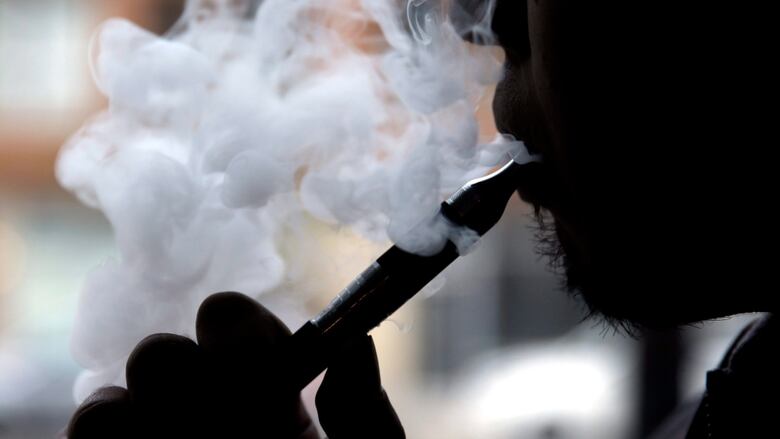N.W.T. divided on regulating vape flavours, public consultation shows
Slight majority of respondents were opposed to banning flavoured vapes

Residents of the Northwest Territories are divided when it comes to banning certain flavours of vapes, a recent public consultation by the territory's Health Department shows.
A report on the consultation released Tuesday shows that 51 per cent of more than 500 respondents opposed the development of new regulations to limit the number of flavoured "vapour products."
The report frames the findings as "approximately half" of respondents supporting the idea of further regulation "to better protect the health of N.W.T. children, youth and non-smokers."
The territory introduced its first legislation regulating the sale of vapour products in March of last year, updating the Tobacco Control Act to more closely align with regulations in place across the country.
Many vapour products contain nicotine, like cigarettes, but their long-term health impacts are not as well understood. Some proponents claim they are useful aids for quitting conventional cigarettes or smoking altogether.
Currently, only people over 19 can buy vapour products, and advertising, packaging and promotion of the products is subject to strict guidelines aimed to limit their appeal.

However, flavoured vapour products have increasingly come under scrutiny for appealing to youth, with flavours like banana split, cotton candy, and Froot Loops. Several provinces have already banned their sale
"Vaping is becoming increasingly popular, particularly among youth," the introduction to the report reads. "The availability and abundance of sweet flavoured vapour products and the fact that these products have been advertised in ways that appeal to youth is contributing to the increase in youth vaping across Canada."
The report highlights that a third of residents aged 15-24 have tried vaping "at least once," and that 20 per cent of residents did so "because they liked the flavours."
School consultations held in 2019/2020 also found "significant concern" among teachers and health professionals regarding "the number of children and youth who have both tried and continue to vape."
Respondents doubt regulations efficacy
The department asked whether all flavoured vapour products should be banned or just certain flavours, soliciting feedback via an online survey and through requests sent to product vendors and "other stakeholders," including anti-smoking groups.
Online, some 190 respondents, or roughly 40 per cent, favoured an outright ban. Another 20 or so supported banning flavours, like "candy" or "dessert", that could be seen as marketing toward children.

The remaining 256 respondents opposed a ban. Among the concerns raised were that vapes would not be available as an alternative to cigarettes or a tool to quit smoking, and that new regulations would not prevent youth vaping.
The report notes that a significant number of those respondents held that "vaping is … not harmful" or is a "healthy alternative to smoking."
Written submissions were more inclined to support a partial ban, with 36 of 56 respondents supporting the continued sale of tobacco-flavoured vapes "to assist in smoking cessation."
Industry, advocates weigh in
Industry and advocacy groups also had their chance to weigh in via written submissions.
Local organizations, like Sport North, the Tree of Peace Friendship Centre, and N.W.T. Gymnastics, wrote in with their support for an outright ban "to protect youth."
The Canadian Cancer Society also submitted a response, saying sweet flavours are more likely to be seen as harmless and are "associated with youth's willingness to experiment."
On the other side, Imperial Tobacco, which produces many vaping products, countered that there is little evidence connecting youth vaping to the availability of flavours.
One local business owner chimed in to say banning flavoured vapes would provide less choice to those quitting cigarettes, and would negatively affect their bottom line.
Right 4 Vapers, an advocacy group, also submitted a response arguing that "vaping is an important part of Canada's tobacco harm reduction agenda," and asserting that "lung injuries and death are being misattributed to vapour product use."
Overall, the report concludes, the most common "theme of concern" was that limiting flavours may reduce vapes appeal as an alternative to cigarettes and a tool for quitting smoking.
Additionally, "both those who support this initiative and those who do not, communicate the need for more public information respecting the risks and harms associated with vaping and debunking common myths," it reads.